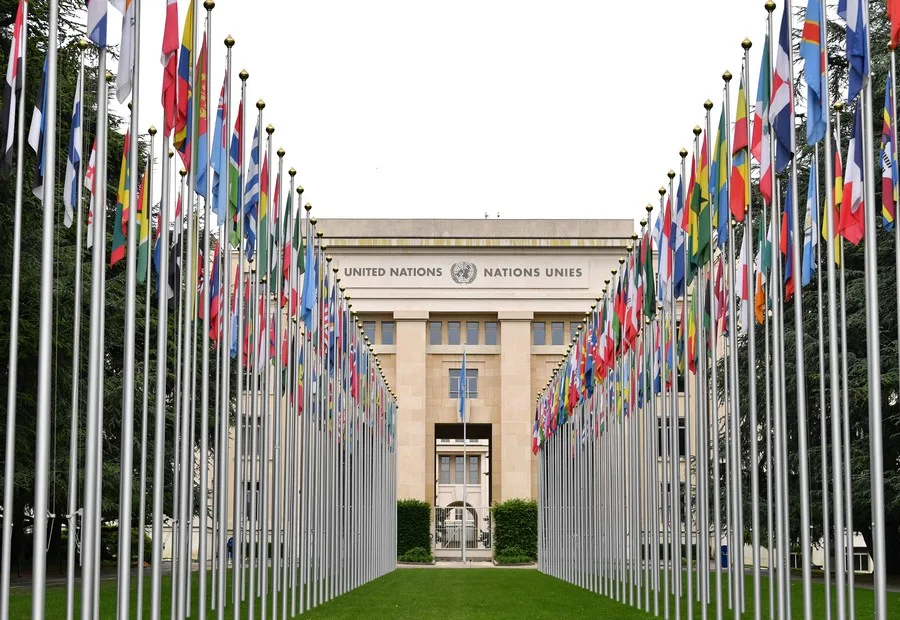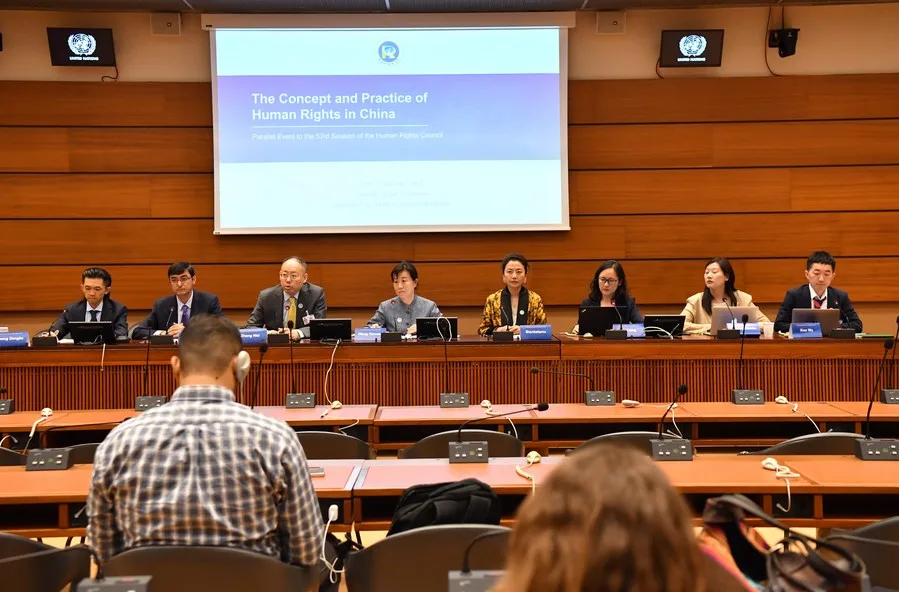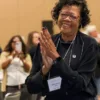
This photo taken on May 21, 2023 shows the Palais des Nations, in Geneva, Switzerland. (Xinhua/Lian Yi)
For too long, by flexing their economic and military muscles, some Western countries have tried to style themselves as role models and thrust so-called “universal values” upon others.
by Yi Xin
The 53rd Session of the United Nations (UN) Human Rights Council that just concluded in Geneva was a tale of two contrasting stories.
Unsurprisingly, one featured Western preaching of human rights with emphasis on civil and political rights while sidelining the right to life and development, and economic, social and cultural rights.
Encouragingly, the other was comprised of experiences and lessons in working to enhance the wellbeing of one’s nationals, with the goal of learning from each other to better deliver benefits for the people.
DOING BY SAYING
At the Palais des Nations, some Western countries adopted the familiar playbook of abusing human rights for thinly veiled political agendas.
The United States, Canada and France insisted on using the disrespectful term “regime” to address Iran, an internationally recognized sovereign state, despite the Iranian president’s appeal to use proper language and the opposition of multiple countries. Such conduct threatened to relegate a platform for dialogue and action into a venue for attacking those who refuse to bow to one’s own will.
Human rights should not be a convenient excuse for launching sanctions and wars on other countries, especially while ignoring the human rights problems at home. The killing of the African-American man George Floyd in the United States should have been a strong enough example to remind certain countries to put their people’s lives before geopolitical games.
For too long, by flexing their economic and military muscles, some Western countries have tried to style themselves as role models and thrust so-called “universal values” upon others. Contrary to the claimed effect, the result has only been more suffering around the world, such as in Afghanistan and Syria. If the West really wants to do something to protect human rights, they could start by stopping the sale of weapons to Ukraine and fulfilling their pledged assistance to small island developing countries on climate response.

China Society for Human Rights Studies holds a side event at which experts detail the concept and practices of human rights in China during the ongoing 53rd session of the United Nations (UN) Human Rights Council, at the Palais des Nations in Geneva, Switzerland, on July 3, 2023. (Xinhua/Lian Yi)
SAYING BY DOING
At side events during the session, developing countries did not hesitate to expose Western hypocrisy and compare notes on improving the rights of their people.
Venezuela spoke up about how the United States had arbitrarily detained one of its diplomats in a third country and refused him urgent medical treatment, laying bare a double standard, and a selective approach to promoting human rights. Nepal talked about how it graduated from the ranks of least developed countries by focusing on the right to development and the necessity to improve health care and education. Qatar shared its work in helping underdeveloped countries build capacity for independent growth, and drew attention to outstanding deficits in climate finance, technology assistance and foreign direct investment.
Melik Ozden, director of the Centre Europe-Tiers Monde, a non-governmental organization, underlined the fundamental role of self-determination and non-discrimination in all other human rights. It is ironic that some Western countries have violated both, by waving their yardstick at countries trying to make their own decisions and showing little respect for others’ national realities.
The protection of human rights should be based on a country’s conditions and the needs of its people. In China’s case, it has lifted 800 million people out of extreme poverty, completing the poverty reduction goal of the UN 2030 Agenda for Sustainable Development 10 years ahead of schedule. Life expectancy has risen from 35 years when New China was founded to more than 78 years now. Work to “defend the blue sky and lucid water” has yielded notable outcomes. The Women’s Rights and Interests Protection Law has recently been amended. Whole-process people’s democracy has empowered every Chinese person with extensive democratic rights. As a result of this concrete work, more than 93 percent of the Chinese people are satisfied with their government, as shown by a Harvard Kennedy School survey over 13 years.
The 53rd Session of the UN Human Rights Council has made a vivid case of who is talking the talk and who is walking the walk. Human rights are about humans, not politics. The Human Rights Council should be a place where all parties come together to improve the situation of humans, not where a handful of countries play politics.
Editor’s note: Yi Xin is a current affairs commentator based in Beijing.
The views expressed in this article are those of the author and do not necessarily reflect the positions of Xinhua News Agency.■


